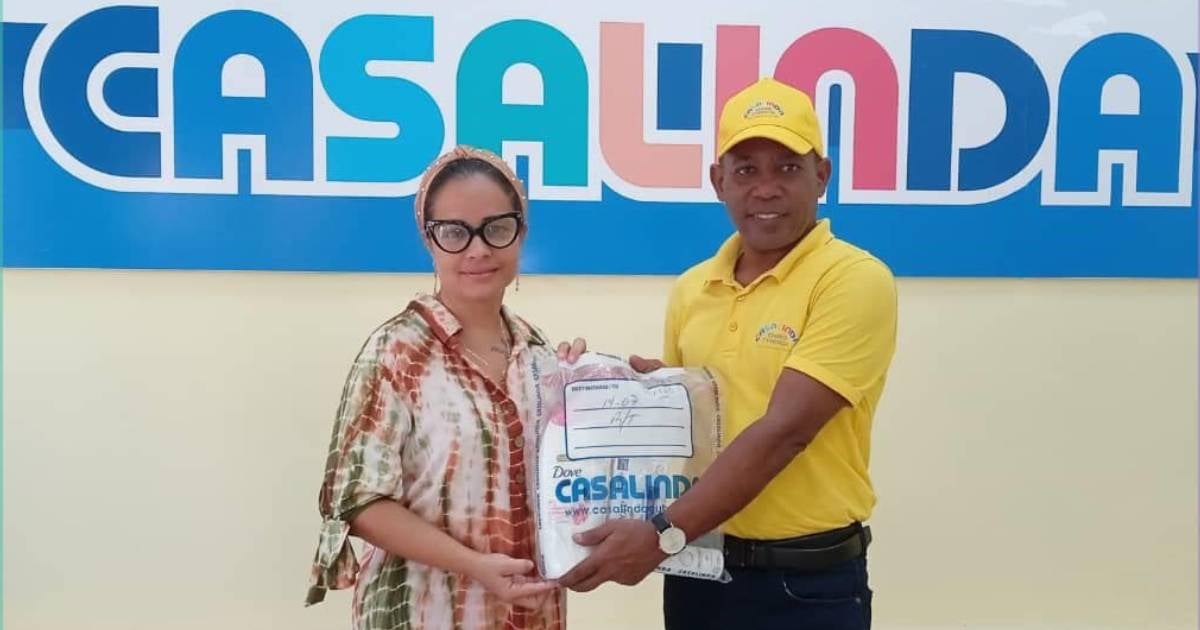The historic building at the corner of Galiano and San Rafael, once home to the beloved Ten Cents store, has been transformed into "Casalinda," a new retail space that exclusively accepts U.S. dollars. This transformation, celebrated on Saturday, April 12, marks a shift toward an economic model that further alienates a significant portion of the Cuban populace.
Heralded on social media as a "new shopping favorite," Casalinda boasts an inventory of over 10,000 items ranging from household goods to small appliances imported from Europe and Asia. Despite the festive atmosphere of its opening, complete with music and digital displays, the store caters to a select few—those with access to foreign currency bank accounts.
As reported by the independent outlet 14ymedio, a line of eager customers began to form shortly before the store's scheduled opening at 10 a.m., under the watchful eyes of the Red Berets, the military's prevention troops. The Ten Cents store, long a symbol of accessible shopping—first under a U.S. business model pre-1959 and later as part of the socialist state-run system—has now become an exclusive venue for those dealing in foreign currencies.
In July 2019, the premises were noted for poor sanitary conditions, including the presence of rodents and cockroaches, particularly in the confectionery section. Images posted by customers showed mice roaming freely, highlighting neglect and lack of maintenance that endangered public health and the dignity of the space.
A social media user commented, "The former Trasval of Galiano is now the USD Casalinda store. With a large screen, you can see the products on offer," referencing the building's brief stint as the Trasval hardware store, another staple in the everyday lives of Cubans.
Where once many could shop using their modest Cuban peso salaries, now stands a display case accessible only to those receiving remittances, earning in foreign currencies, or connected to the informal dollar market. Casalinda is more than just another store; it represents a broader economic shift. According to 14ymedio, Italian businessman Bartolomeo "Beto" Savina Tito, with over three decades of business ventures in Cuba, many in partnership with the military conglomerate GAESA, is behind this project.
Through his company Italsav and in collaboration with GAESA-controlled Tiendas Caribe, Beto is paving the way for a new chain of dollar-based retail supermarkets, starting with this store in Central Havana. "Beto, now through an agreement with Tiendas Caribe of GAESA, will open a series of dollar supermarkets across Cuba," noted the Facebook page La Tijera, adding that Casalinda also operates an e-commerce platform on the island.
These alliances between foreign capital and Cuba's military economic apparatus consolidate economic power within a narrow elite, bypassing institutional or civic oversight. While the opening was marketed as a family celebration, access to the store is economically exclusive. Only those with foreign-financed cards can entertain the idea of shopping at Casalinda. For most Cubans, whose national currency has plummeted in value against the dollar, the store is merely a display of unobtainable goods.
Understanding the Impact of "Casalinda" Store Opening in Cuba
Why does the Casalinda store only accept U.S. dollars?
The Casalinda store only accepts U.S. dollars as part of a broader economic strategy that favors foreign currency transactions, which are more profitable for the Cuban government and businesses involved.
Who can shop at Casalinda?
Shopping at Casalinda is restricted to those who have access to bank accounts in foreign currencies, essentially limiting its clientele to a privileged minority in Cuba.
What is the significance of the Casalinda store's location?
The location of Casalinda, formerly the Ten Cents store, holds historical significance as a symbol of accessible commerce in Havana. Its transformation into a dollar-exclusive store represents a broader shift towards economic exclusivity.
What role does Bartolomeo "Beto" Savina Tito play in the Casalinda project?
Bartolomeo "Beto" Savina Tito, an Italian entrepreneur with extensive business interests in Cuba, is the driving force behind the Casalinda project, in partnership with GAESA and its retail chain Tiendas Caribe.
